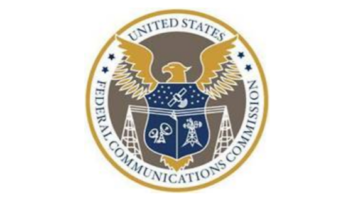The PIRATE Act became law three years ago. But thanks to the pandemic and delays in funding, the Federal Communications Commission has been slow in carrying out several of the law’s requirements.
Now the FCC has published a database listing the people against whom it has taken pirate radio enforcement actions. It has posted field agent openings, begun sweeps of major markets and planned the purchase of a half-dozen specialized vehicles.
It tweeted the news:
The @FCC launched a database to identify entities against whom enforcement actions for pirate radio broadcasting have been issued. More info: https://t.co/H51o8q8hrQ
— The FCC (@FCC) January 24, 2023
The part of the law that drew the most news coverage was a big increase in potential fines, up to more than $2 million. Only one forfeiture order has resulted since then, and it was for $10,000.
But it is the additional requirements placed on the FCC by Congress that have been hard to carry out.
In 2020 and 2021, the FCC had said it was hampered by the pandemic, which limited in-person investigations, as well as a lack of money from Congress. The Congressional Budget Office and the commission had estimated that the act would cost $11 million to implement. But not until March of 2022 did Congress provide funding, and it was for only $5 million.
But the FCC said that money would allow it to start hiring additional staff. In a new report to Congress, it says that so far it has posted five field agents and one field counsel, with more hires planned.
It said it also is prepared to buy six customized mobile direction-finding (MDFX) vehicles, but the purchase is delayed until a GSA purchasing window opens. “Until the additional purchases can be completed, the commission will temporarily retain older, existing vehicles in its fleet that were scheduled to be excessed,” it wrote. “Commission staff has also begun to purchase and develop investigative tools that will be integrated into the [planned] new MDFX vehicles.”
The FCC also said it “developed a plan for pirate sweeps, which was initiated in the fourth quarter of 2022,” though it didn’t list the markets or provide details. The act requires it to conduct annual enforcement sweeps in the top five markets where illegal broadcasts are a problem.
The act also gave the FCC additional enforcement authority over property owners and managers that allow stations on their properties. The Enforcement Bureau now says that in fiscal 2022, it issued 21 notices to property owners and managers about apparent pirate broadcasts from their property. “Because pirate radio stations often cease operating for a period of time but then return, the Bureau will continue to monitor the properties for which notices were provided and will initiate enforcement action where appropriate,” it told Congress.
Here’s a link to the new public database, which went live Monday. It includes a list of past actions, most of which Radio World has reported, as well as a map showing where the actions are concentrated, with New York, Pennsylvania and Maryland leading. It lists 38 actions over three years, including the landlord notice letters, consent decrees and the $10,000 forfeiture.






